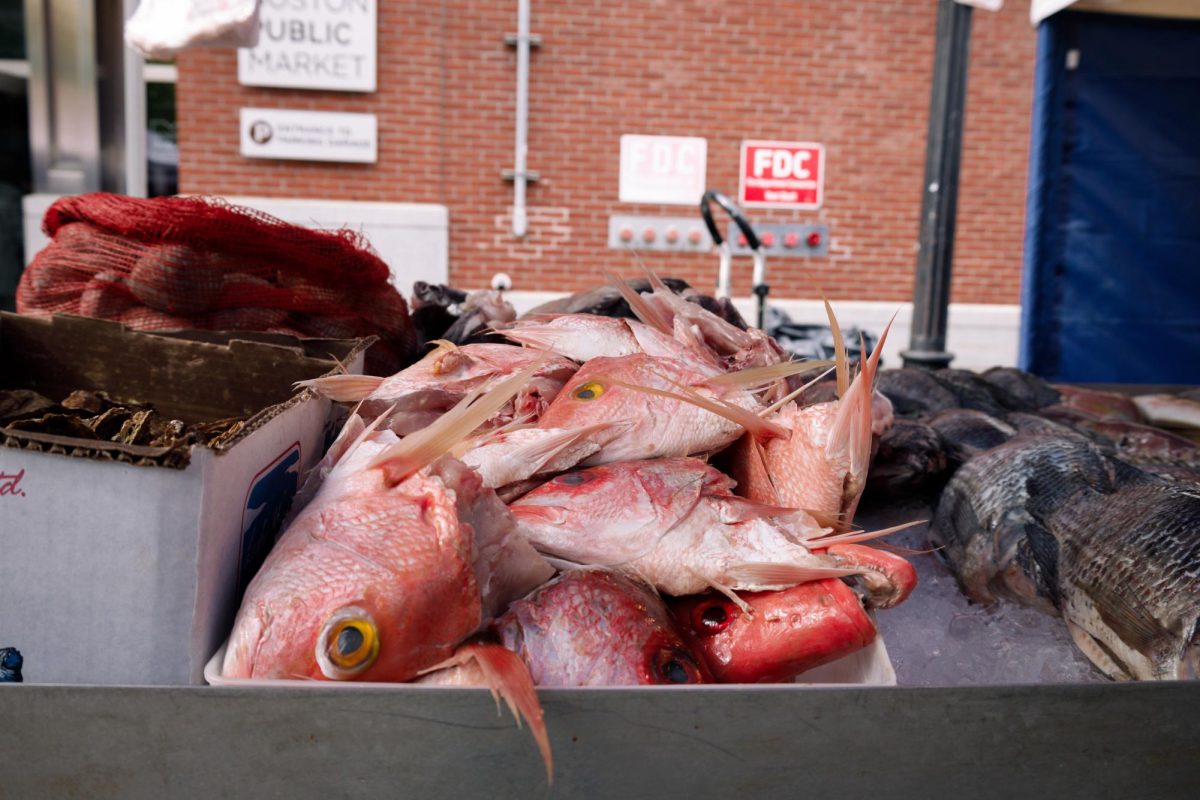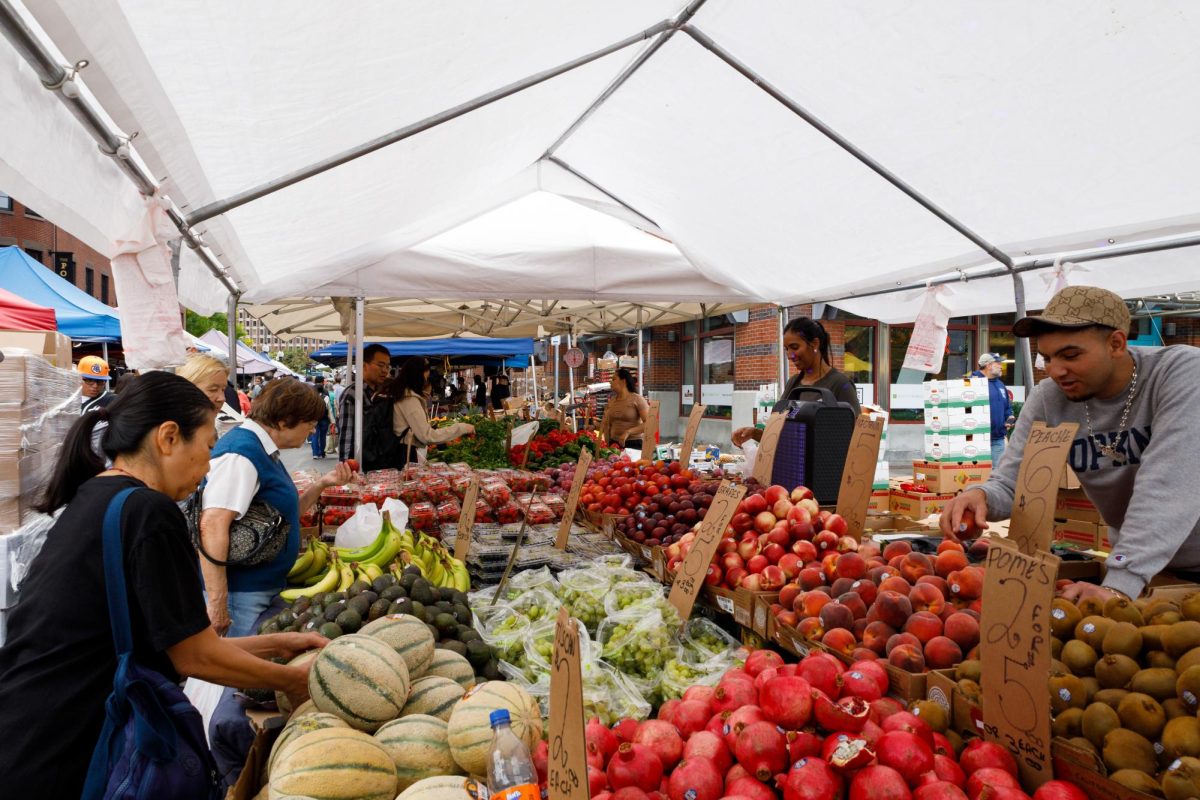The city’s oldest and one of its biggest outdoor grocery markets reopened for the season earlier this month and will be open on Fridays and Saturdays year-round.
Located next to Faneuil Hall and the North End on Blackstone Street, Boston’s Haymarket is often filled with many vendors busy at work selling fruits, vegetables, and seafood. Weather permitting, vendors will sell their products even in the colder months.
Haymarket vendors are known for selling fresh produce at lower prices than other local markets, making it popular among college students and those on a budget.
“It’s easier for us to sustain, me and my brother and my mom,” said Stephnie Escalera, a frequent customer at Haymarket. “This is easier for us to be sustainable with money as well. Unlike other supermarkets, money goes away real quick.”

Fisherman Mahmoud Khalil, a vendor at Haymarket, has fun selling fish from a local pier every weekend at the market.
“That’s why I’ve been doing it,” Khalil said, adding that the market’s community is part of its appeal. “We help the people too. Nobody can compete with [that].”
The Boston Public Market, a competing indoor supermarket, is located inside a building next to Haymarket. When comparing the quantity of food that Escalera can afford at supermarket prices, “it’s not enough,” she said.
Some vendors begin setting up as early as 4 a.m. On Fridays, Khalil and his friends arrive early. While there are no “official” hours for Haymarket, most vendors arrive around 6 a.m. and stay until 6 p.m., or later, in the summer. But sometimes the summer heat becomes too much to stand, Khalil says.
Haymarket offers many tips to shoppers on its website, including a list of rules and regulations for vendors and shoppers alike. The market area is designated as the “Haymarket-Blackstone Market” as stated by Ord. 1978 in the City of Boston Municipal Code.
The best produce is available early, but the best deals are later on Saturday stated by rule 13 on Haymarket’s website. The website also states after 3 p.m. on Saturdays, customers can bargain prices and discounts can also be applied anytime to cases of produce.

Established in 1820, Haymarket is 40 years older than the American Civil War and 92 years older than Fenway Park. Its name originates from farmers and immigrants who arrived in Boston in wagons of hay. The hay was then sold to be used for other purposes like feeding horses and stuffing mattresses, eventually developing into the Haymarket of today, where produce is sold instead.
Besides other markets, Haymarket is surrounded by historic restaurants and pubs too. Haymarket is accessible via the green and orange MBTA line. Parking starts at $1 for two hours and then $3 for three hours.
Haymarket celebrated its 200th anniversary during the pandemic in 2020, even though the market’s history dates back further. Faced with many obstacles during the pandemic, such as fewer customers and vendors, Haymarket managed to continue offering affordable food.
“Everybody has to eat,” Khalil said.
“If they want something cheap and healthy they can come here,” Escalera added.